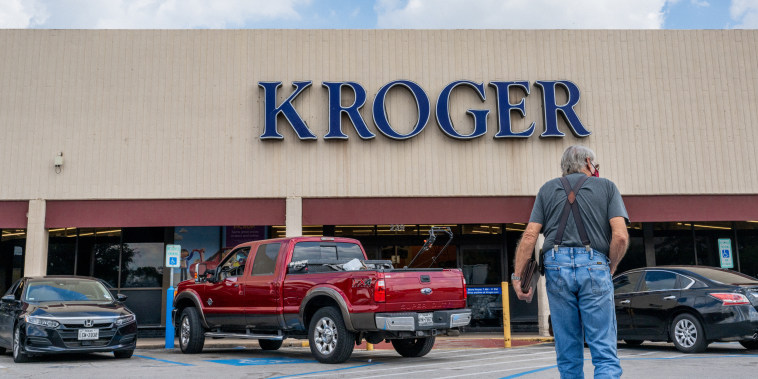In a recent turn of events that has sent shockwaves through the grocery industry, the Biden administration has taken a bold step by suing to block the proposed merger between Kroger and Albertsons. This move comes amidst growing concerns around potential monopolistic practices and anti-competitive behaviors in the retail grocery sector.
The combination of these two retail giants would undoubtedly create a dominant force in the market, with significant implications for both consumers and competitors. Kroger, currently the largest supermarket chain in the United States, and Albertsons, the second-largest, together would control a substantial portion of the grocery market share, potentially leading to increased prices, reduced choices, and diminished competition.
Antitrust laws exist to promote fair competition, prevent monopolies, and protect consumers from anti-competitive practices. The Federal Trade Commission (FTC), responsible for enforcing these laws, identified the Kroger-Albertsons merger as a potential threat to competition and consumer welfare. By filing a lawsuit to block the merger, the Biden administration has signaled its commitment to upholding these principles and safeguarding the interests of consumers.
The repercussions of allowing such a merger to proceed could be far-reaching. Smaller grocery chains, independent retailers, and local businesses may struggle to compete against the combined resources and market power of Kroger-Albertsons. This could lead to a decrease in diversity and innovation within the grocery industry, limiting consumer choice and potentially driving up prices.
Furthermore, concerns have been raised about the impact of the merger on suppliers and workers. A consolidated Kroger-Albertsons entity may have greater bargaining power with suppliers, leading to potential squeeze on margins and unfavorable terms for smaller producers. Additionally, the consolidation of operations could result in redundancies and job losses as the merged company seeks to streamline its workforce and reduce costs.
It is essential for regulators to carefully scrutinize proposed mergers of this scale to ensure that they do not harm competition or consumer interests. By challenging the Kroger-Albertsons merger, the Biden administration is sending a clear message that it will not tolerate anti-competitive behavior in the grocery sector and will act decisively to protect the integrity of the market.
As the legal proceedings unfold and the fate of the merger hangs in the balance, the outcome will have significant implications for the future of the grocery industry and the broader landscape of competition and consumer protection. The case serves as a reminder of the vital role that antitrust regulations play in safeguarding market dynamics and ensuring a level playing field for businesses of all sizes.



























